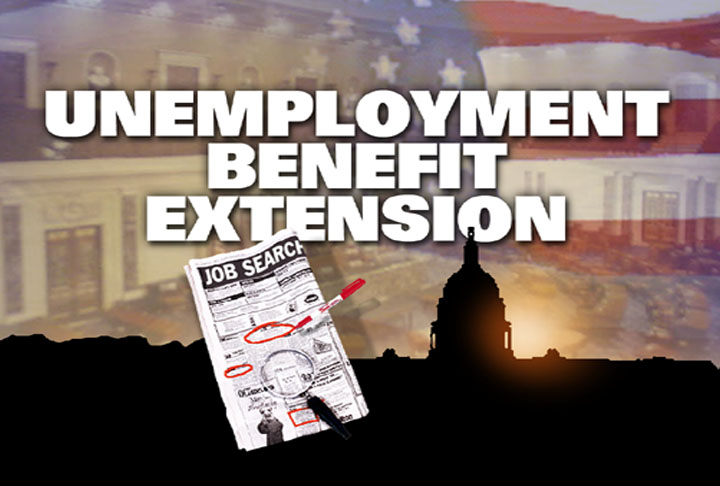

Share
With 72,000 more unemployed workers losing their jobless benefits every week, organized labor and its civic, religious and congressional Democratic allies turned to public pressure to push resurrection of the benefits through a hostile GOP majority in the U.S. House.
That promise came from AFL-CIO President Richard Trumka and others in a press conference-cum-rally Jan. 8 on Capitol Hill, even as the Democratic-run Senate was expected to approve the 3-month measure this week.
The legislation would aid 1.4 million — and counting — long-term jobless workers. There are so many jobless that if they stood shoulder-to-shoulder, the line “would stretch from here to Lincoln, Neb.,” Rep. Sander Levin, D-Mich., said.
Senators planned to pass the jobless benefits extension after a GOP filibuster to kill it failed on Jan. 7. The benefits, retroactive to Dec. 28, would give the average jobless worker several hundred dollars per check, after their state benefits, 20 weeks to 26 weeks’ worth depending on their state’s law, expired.
“The job market is pretty cold and freezing out there” for the long-term unem-ployed, Trumka told the room packed with print and video reporters and jobless workers. “Most hard-working Americans – bus drivers, teachers, construction workers, police officers – are one layoff or one downturn away from real economic disaster.
The jobless have already suffered that disaster “and they want to work,” he declared. “It’s up to us to make their hard times a little easier” in “a recession” caused by Wall Street greed “that goes on and on and on.”
The jobless workers are taking their stories to lawmakers both on Capitol Hill and at home, AFL-CIO Legislative Director Bill Samuel said. That includes 2,000 calls per day, constant e-mails, contacts by AFL-CIO state fed leaders, and visits to lawmakers’ district offices. Whether the ruling House GOP is listening is another matter.
In opening comments the day before on the House floor, the common Republican refrain was pious pronouncements that they want to aid the jobless, but that the $6.4 billion cost of sending out the checks for three months must be paid for by killing the “individual mandate” of the 2010 Affordable Care Act, the health care law.

